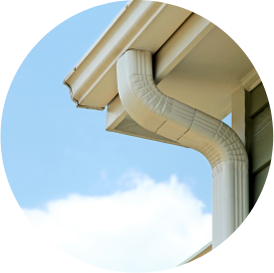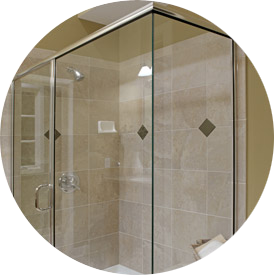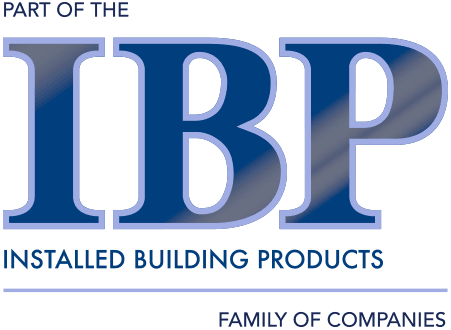- 3410 High Street, Portsmouth, VA 23707
- |Contact Us
FAQ
Have questions about insulation or other energy efficiency and home improvement projects? Below, we’ve listed common questions about insulation, air sealing, energy audits and gutters. If you can’t find the answer to your question, feel free to contact us!
Insulation
What is insulation and how does it work?
Insulation is a material that stops the transfer of heat and helps increase the energy efficiency of your home. In the summer, it stops warm air from leaking in, and during the winter, it helps heat stay in your home rather than escaping out. How insulation stops heat depends on the type / material.
What are the different types of insulation I can use?
There are many different types of insulation available:
- Fiberglass (loose-fill or blanket / batts and rolls)
- Cellulose
- Spray foam
- Radiant barrier
How much insulation do I need to install?
A few factors determine how much insulation you need to install, including:
- Where you live
- How old your home is
- Area(s) of your home you need to insulate
- And more
Where should I insulate my home?
It’s best to talk to a professional insulation contractor for your specific situation, but in general, your whole house should be insulated:
- Attic
- Basement
- Any crawl spaces in your home
- Interior and exterior walls
- And more
What is insulation R-value?
The R-value of a type of insulation is the measurement of how effective it is—how well it stops heat transfer. The R-value depends on the material, thickness and density of the insulation. Generally, the higher the R-value, the better.
What are the benefits of insulation?
Insulation provides a number of benefits. Increased home energy efficiency and energy bill savings are the major ones, but there are many more, including:
- More comfortable home year round
- Reduced outside noises (and noises between different levels and rooms inside)
- Improved air conditioner and furnace efficiency
- Protection against air leaks and moisture problems
- Reduced carbon footprint (and contribution to an overall healthier environment)
Does insulation reduce noise?
Yes, insulation reduces both airborne and impact noises. Cellulose and fiberglass insulation are the best types of insulation to use for sound control.
How can I make insulation more efficient?
DIY projects are never recommended—professional installation helps ensure the best results. Another way to make sure your insulation is working as efficiently as possible is to seal any air leaks, which can undermine the performance of insulation.
Where can I get insulation?
Insulation is available at home improvement and hardware stores, but contacting a local insulation company is beneficial in a number of ways. It helps ensure the insulation is installed correctly and safely and does what it is meant to do—help increase the energy efficiency and comfort of your home.
How much can insulation save me?
It’s hard to determine exactly how much insulation can save without specific information (every situation is different). Ultimately, how much you can save with insulation depends on where you live, the size of your house, where you insulate and other factors.
What’s the best insulation for soundproofing?
The best types of insulation for soundproofing purposes are loose-fill cellulose and fiberglass.
Air Sealing
What is air sealing and what does it entail?
Air sealing is reducing the amount of air that leaks into and out of your home to improve its overall energy efficiency and comfort. To reduce or eliminate air leakage, you need to find the source of the air leaks and cover them. Caulk and weatherstripping are two common air sealing techniques.
How can I find air leaks?
There are a few signs that indicate you may have air leaks in your home—such as drafts, windows and doors that easily rattle and move, etc. Check areas like:
- Fireplace dampers
- Attic hatches
- Vents and fans
- Electrical outlets
- And more
Why is air sealing important?
Sealing air leaks helps maximize the energy efficiency of your home. A lot of air leaks into and out of your house on a daily basis—the attic, windows, doors and walls are the biggest culprits. Using caulk, weatherstripping or another method to air seal ensures your home is as energy-efficient as possible, helping you save money and live more comfortably.
How is air sealing related to insulation?
Air leaks can undermine the performance of insulation. If your home is properly insulated but has air leaks that aren’t sealed, it isn’t as energy-efficient as it could be.
Energy Auditing
What is an energy audit?
An energy audit is an assessment of your home’s overall energy efficiency. It can show you where your home is leaking air and losing money. Tidewater Insulators offers energy audits as part of our Comfort Home Program, which provides a unique approach to insulating your home
What are the benefits of energy audits?
An energy audit shows you exactly where your home is costing you extra money—it’s a fast-track solution to maximizing your home’s energy efficiency!
How are energy audits related to insulation?
If you know where your home has the most potential for energy efficiency—whether it’s the attic, a crawl space, etc.—you can start by insulating those places! Attics are one of the biggest sources of energy loss in homes and are often one of the best places to insulate.
Gutters
How can I tell if I need gutter repair or replacement?
Talking to gutter professionals is the best course of action, but there are some telltale signs that you may need to repair or replace your gutters, including:
- Clogs
- Overflowing water
- Rust, flaking or peeling
- More frequent (and expensive) repairs
- And more
What kind of gutter maintenance do I need to do?
At a minimum, you need to keep leaves and other debris out of your gutters to prevent clogging and other damage. Ideally, you should clean, or get professional cleaning services, twice a year—once in the spring and then again in the fall after the leaves are off the trees. Professional inspection and cleaning will produce the best results.
What are the benefits of gutter replacement?
Besides properly diverting water away from your home and protecting it from water damage, new gutters can:
- Protect your home’s foundation from leaks, rotting, mildew, etc.
- Prevent erosion and protect your home’s landscaping
- Help keep siding and masonry clean and in good condition
Why is there standing water in my gutters?
There are a number of different things that can cause your gutters to clog, including sticks and small branches, leaves, downspout clogs, etc.
How long do gutters last?
Gutters should last at least 20 years, and many systems can last longer that, especially if properly cleaned and maintained.
What’s the difference between sectional and seamless gutters?
Seamless gutters are continuous, with only joints at the corners and where the gutters meet the downspouts. Sectional gutters have 10- to 20-foot sections with multiple seams. Both types of gutters have their own benefits.
Shower Doors
What is the difference between a framed and a frameless shower door?
A framed shower door has framework, usually chrome or gold, around the operable part of the door while a frameless door doesn’t have any framework.
When should I replace my shower door?
There are a few problems you may be experiencing with your shower door. Common signs that you need to replace it include incorrect operation (door doesn’t close all the way or doesn’t fit properly), rust, cracked glass, etc.
What’s better, a shower door or a shower curtain?
It largely depends on your preferences. While curtains are cheaper and provide more privacy, shower doors have more aesthetic value and can help make small spaces seem more spacious. Also, there are many types of glass that offer privacy options.

We provide energy audits to help homeowners save money and live more comfortably.




